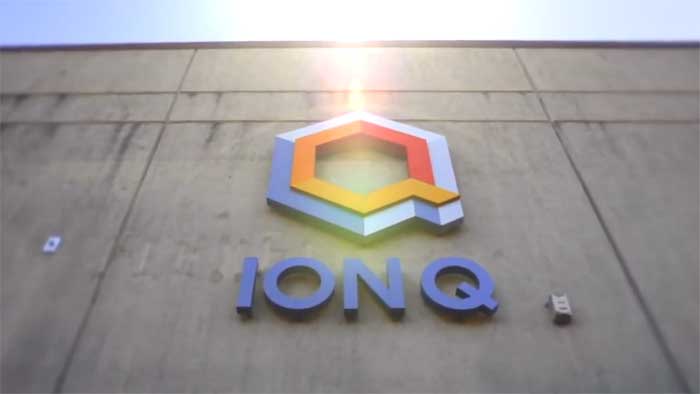 EMERGING TECH
EMERGING TECH
 EMERGING TECH
EMERGING TECH
 EMERGING TECH
EMERGING TECH
Quantum computing specialist IonQ Inc. said today it plans to acquire virtually all of the operating assets of quantum networking startup Qubitekk Inc., as it looks to build out the infrastructure required to scale up its cloud-based services.
It was a busy day for IonQ, which also revealed it’s collaborating with the computer-aided design software firm Ansys Inc. to bring the benefits of quantum computing to the engineering simulation software industry.
In addition to that partnership, IonQ reported its latest financial results, missing expectations on earnings. The report sent the company’s stock lower in the after-hours trading session.
The acquisition of Qubitekk will help IonQ strengthen its position at the forefront of the quantum networking industry, the company said.
IonQ is one of the leading lights in the nascent quantum computing industry, and stands apart from rivals like Google LLC and IBM Corp. in that it’s exclusively focused on the next-generation computing technology. It has developed a quantum computer that relies on a technology known as “trapped ions,” which involves using lasers to manipulate and stabilize the fragile “qubits” that perform quantum calculations. Its qubits take the form of charged particles suspended in a vacuum, which means that its machines don’t have to operate at subzero temperatures like its rivals’ quantum systems do.
The companies allows enterprises to access its quantum computers via the cloud, having forged partnerships with Amazon Web Services Inc., Microsoft Corp. and Google, enabling early adopters to start exploring the technology without making significant upfront investments.
Though IonQ claims to have the quantum computing system nailed down, it still has work to do on the infrastructure needed to support it. The company said that quantum computing demands a very different kind of networking infrastructure than the one that’s used in traditional computing, which explains the acquisition of Qubitekk today.
The startup has designed and built various quantum networking components that make it possible to connect quantum processors and sensors with their classical counterparts. According to IonQ, Qubitekk’s technology enables multiple nodes to communicate via entangled qubits, offering highly secure communications with precise timing synchronization and thus paving the way for distributed quantum computing. Its network also acts as a transport layer for quantum sensors, which offer an order of magnitude greater sensitivity than traditional sensors.
IonQ’s existing quantum network infrastructure is based on photonic interconnects that can link multiple quantum computers together to create more powerful clusters. It plans to use Qubitekk’s infrastructure to scale those clusters even further.
Meanwhile, the partnership with Ansys is about making precision engineering simulations accessible to both quantum experts and non-experts. By using quantum computers, the company said, it should be possible to perform more complex simulations using Ansys’s software than is possible with classical computers.
In addition, IonQ said it will use Ansys’ multiphysics technology, such as its structural, optical, photonic and electromagnetic simulation software, to design and optimize some of the components of its quantum computing systems, so the partnership should be a win-win for both companies.
“We believe that Ansys’ simulation software will be crucial to designing and scaling our most advanced systems,” said Ariel Braunstein, IonQ’s senior vice president of products and applications.
As for its third-quarter financial report, IonQ delivered mixed results. The company said its loss before certain costs such as stock compensation came to 24 cents per share, trailing Wall Street’s forecast of a 23-cent loss. On the other hand, revenue jumped 102%, to $12.4 million, in the quarter, beating the Street’s target of $10.56 million.
The good news is that IonQ is likely to see its revenue increase significantly in the coming quarters. The company reported $63.5 million in new bookings in the quarter, including a substantial $54.5 million contract with the U.S. Air Force Research Lab. As part of that deal, it will design, develop and deliver the technology required for deploying and scaling quantum systems for military use.
All told, IonQ delivered a net loss in the quarter of $52.5 million, up from a loss of $44.8 million one year earlier.
For the current quarter, IonQ is expecting revenue of between $7.1 million and $11.1 million, the midpoint of which trails the Street’s forecast of $10.99 million. The full-year picture is better, though. For fiscal 2024, the company increased its revenue forecast to a range of $38.5 million to $42.5 million, with the midpoint falling in line with the Street’s target of $40.5 million.
IonQ’s stock had gained more than 7% during the regular trading session, prior to today’s announcements, only to fall 3% in extended trading.
Support our mission to keep content open and free by engaging with theCUBE community. Join theCUBE’s Alumni Trust Network, where technology leaders connect, share intelligence and create opportunities.
Founded by tech visionaries John Furrier and Dave Vellante, SiliconANGLE Media has built a dynamic ecosystem of industry-leading digital media brands that reach 15+ million elite tech professionals. Our new proprietary theCUBE AI Video Cloud is breaking ground in audience interaction, leveraging theCUBEai.com neural network to help technology companies make data-driven decisions and stay at the forefront of industry conversations.